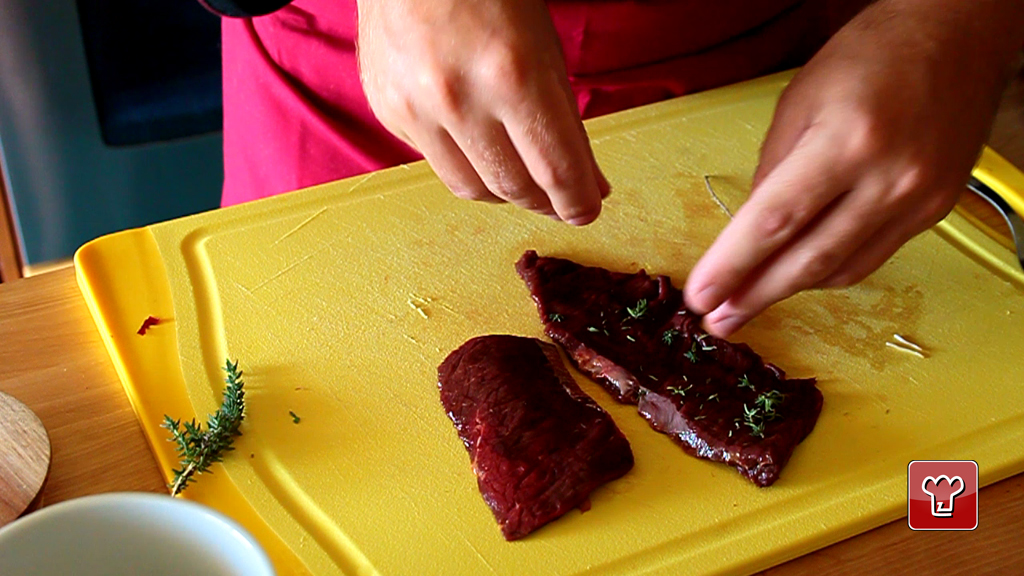Horse meat with mustard and thyme
The summer always brings with it the irresistible urge to spend time outdoors, especially during the evening hours, when the desire to relax combines with the colours of twilight - a moment to inspire cooks’ imagination, and inspiring new meals with which to impress their guests. So, to celebrate a lovely evening with friends why not make horse meat steak, a recipe rich in delicious and inviting aromas and with an excellent, lively taste? Bear in mind that you can accompany this meat dish with a light side salad, ideal for balancing a heavy meat such as horse. Follow our recipe: step-by-step you will make a delicious meal!
Ingredients
-
White wine

Send the recipe
Preparation
Sprinkle the meat with salt (not too much, just to flavour it), spread the mustard on both sides and then sprinkle with thyme leaves. Heat a frying pan with a little oil till quite hot, and sear the meat on both sides, but keeping it rare. When done, add a dash of white wine so as to make a sauce with the mustard and oil. Serve the meat with a few tablespoons of the mustard sauce.
Step by step
|
View the step by step
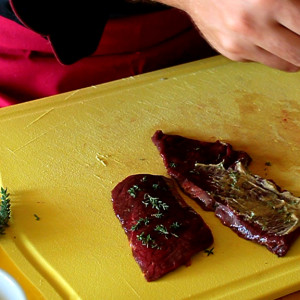
|
Spread wholegrain mustard on both sides of the steak
|
|
View the step by step
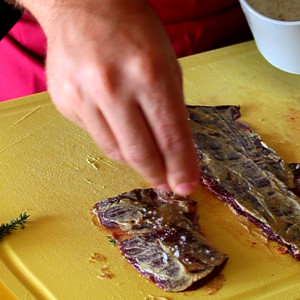
|
Sprinkle with freshly ground sea salt
|
|
View the step by step
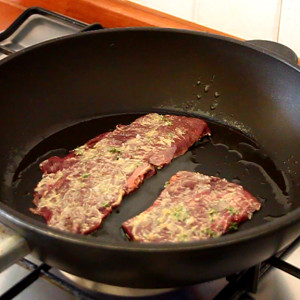
|
Fry in a well-oiled pan on both sides until browned
|
|
View the step by step
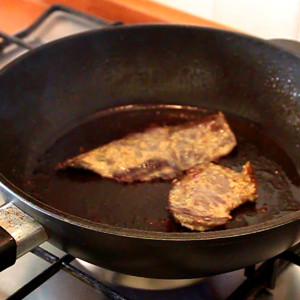
|
Add some white wine and deglaze so as to make a fairly viscous sauce
|
|
View the step by step
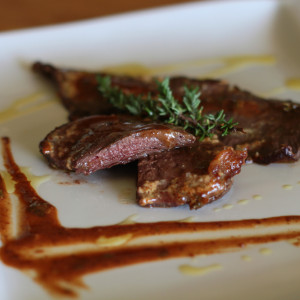
|
Your horse meat with mustard and thyme is ready, light and tasty!
|
Additional Information
Horse meat benefits
Horse meat, often overlooked in many Western countries, actually boasts several nutritional benefits. Rich in protein, horse meat provides a high-quality source of essential amino acids necessary for muscle growth, repair, and overall bodily function. Additionally, it is relatively lean compared to other meats, making it a suitable option for those seeking to reduce their fat intake while still enjoying meat-based dishes. Horse meat also contains significant amounts of vitamins and minerals, including iron, zinc, and vitamin B12, which are vital for energy production, immune function, and neurological health. Furthermore, horse meat production typically has a lower environmental impact compared to other livestock, requiring less land and water resources. In regions where horse meat is culturally accepted, it serves as an important dietary staple, contributing to food security and sustainability.
Horse meat taste
The taste of horse meat is often described as rich, slightly sweet, and tender, with a flavor profile that falls somewhere between beef and venison. Its lean texture lends itself well to various culinary preparations, from hearty stews to grilled steaks. When cooked properly, horse meat maintains its juiciness and succulence, making it a versatile ingredient in diverse cuisines around the world. The unique taste of horse meat can be attributed to factors such as the animal's diet, age, and breed, as well as the cooking method employed. In regions where horse meat is consumed, it is celebrated for its distinct flavor and culinary versatility, often featuring prominently in traditional dishes and cultural celebrations. Despite its relatively niche status in many parts of the world, those who appreciate horse meat value its nuanced taste and consider it a delicacy worth savoring.
What is horse meat called in Italian?
In Italian, horse meat is referred to as "carne di cavallo." This term is commonly used in Italy and other Italian-speaking regions to denote meat sourced from horses.
What's horse meat called?
The term used to describe the meat derived from horses is simply "horse meat." It's a straightforward designation for the flesh of horses that may be consumed for various reasons, including culinary preferences and cultural practices.
Are horses good meat?
The suitability of horse meat for consumption is subjective and varies depending on cultural, ethical, and personal perspectives. In some cultures, particularly in parts of Europe and Asia, horse meat is considered a viable protein source and even a delicacy. However, in other regions, particularly in Western countries, there is often a strong aversion to consuming horse meat due to cultural or ethical reasons. Additionally, concerns about the welfare and treatment of horses raised for meat may also influence opinions on its suitability.
Is prosciutto a horse meat?
No, prosciutto is not made from horse meat. Prosciutto is a renowned Italian dry-cured ham that is typically derived from pork, specifically from the hind leg of a pig. The process of making prosciutto involves salting and air-drying the meat, resulting in its distinctive flavor and texture. While prosciutto is highly valued in Italian cuisine and enjoyed worldwide, it does not involve the use of horse meat.




